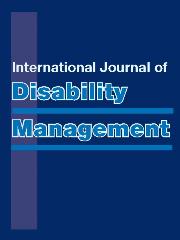Article contents
Understanding Local Barriers to Inclusion for Individuals With Intellectual and Developmental Disabilities Through an Employment Conference
Published online by Cambridge University Press: 07 May 2020
Abstract
Employment is a crucial part of adult life and is associated with improved health outcomes. However, despite the several advantages of hiring individuals with intellectual and development disabilities (IDD), the employment rate for this population is still low. An employment conference was organised to inform participants of successful employment initiatives, and to increase our understanding of local employer challenges regarding the recruitment, hire, and retention of employees with IDD. Descriptive statistics were used to assess common methods of recruitment, potential helpful hiring strategies, and recruitment, hire, and retention challenges, and an ordinal logistic regression was conducted to examine whether responses differed based on demographic variables. The conference was evaluated by gathering data on several facets of participant satisfaction. Findings brought to light several key challenges that can be used to create more targeted interventions and supports. Responses to several questions differed by demographics (such as company size and industry type), which represent important areas for future research to examine. Participants reported being satisfied with the conference, and many indicated that their attitudes had changed towards disability and that they were more likely to employ individuals with IDD in the future. Systematically addressing barriers to employment is essential in order to reduce the employment gap and improve outcomes for individuals with IDD. Ultimately, conferences that aim to educate participants about successful programs and strategies represent a promising practice that can increase employment opportunities for individuals with IDD.
Information
- Type
- Article
- Information
- Copyright
- © The Author(s) 2020
References
- 6
- Cited by

